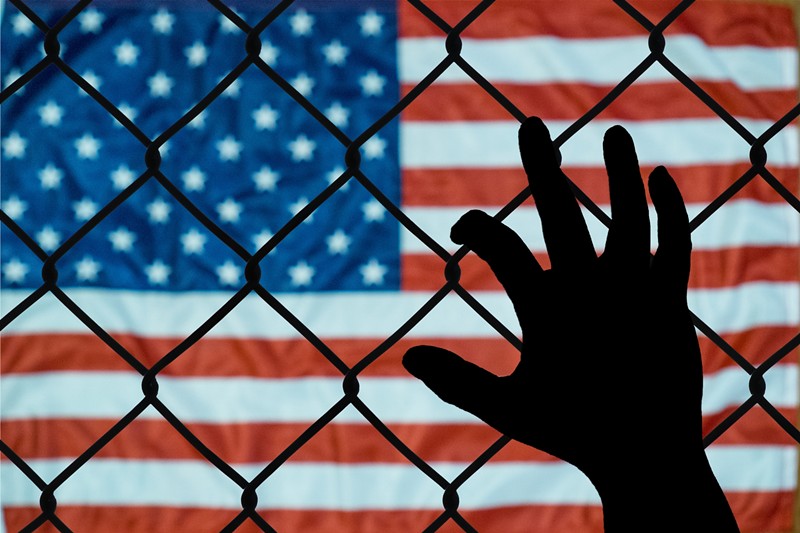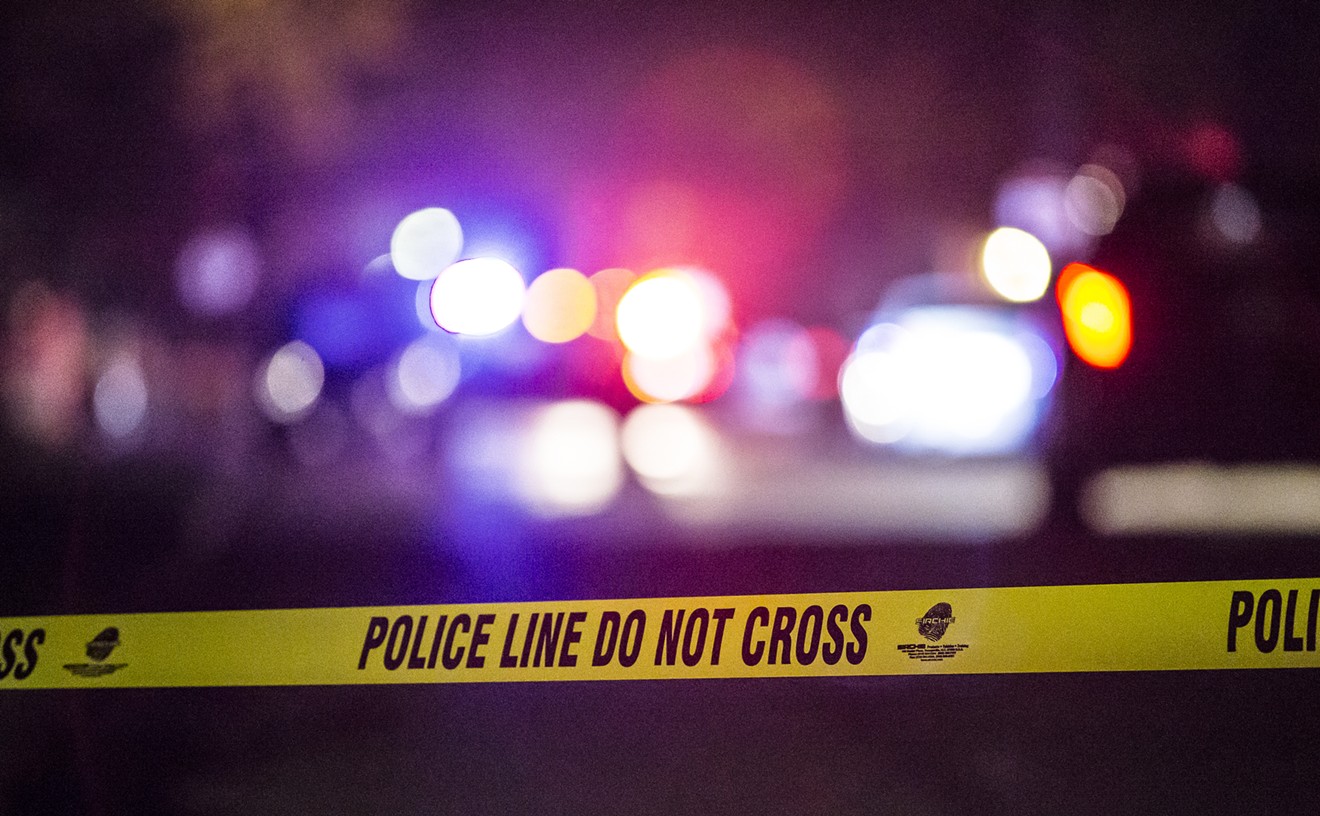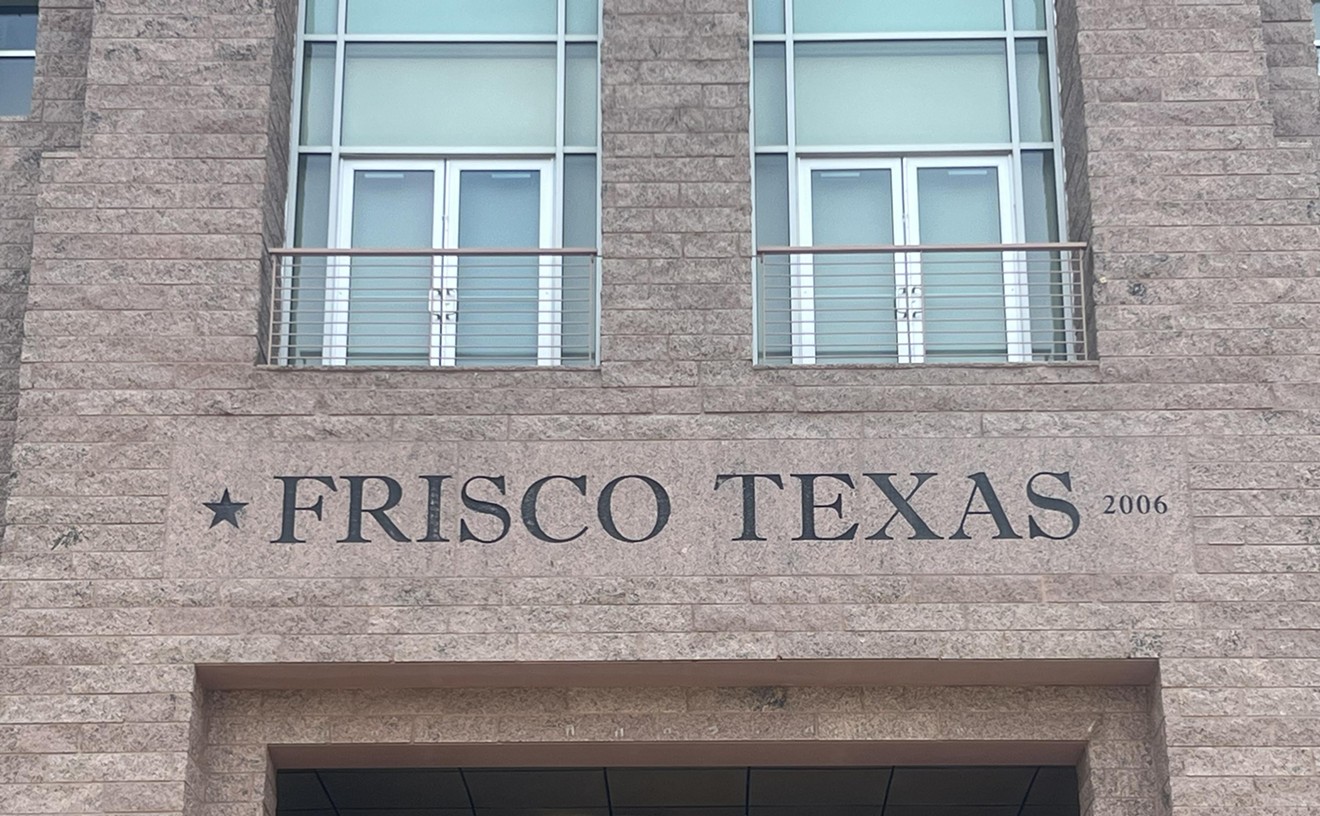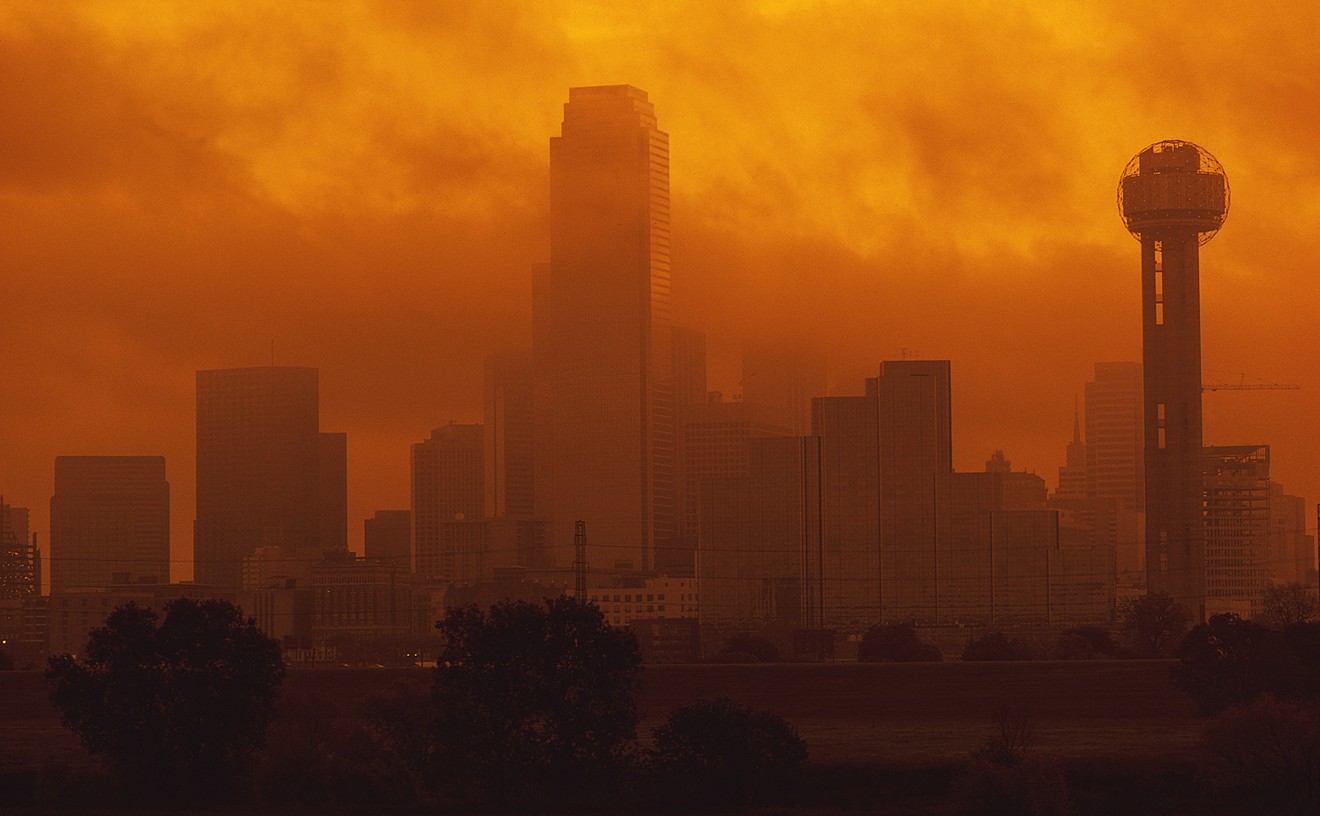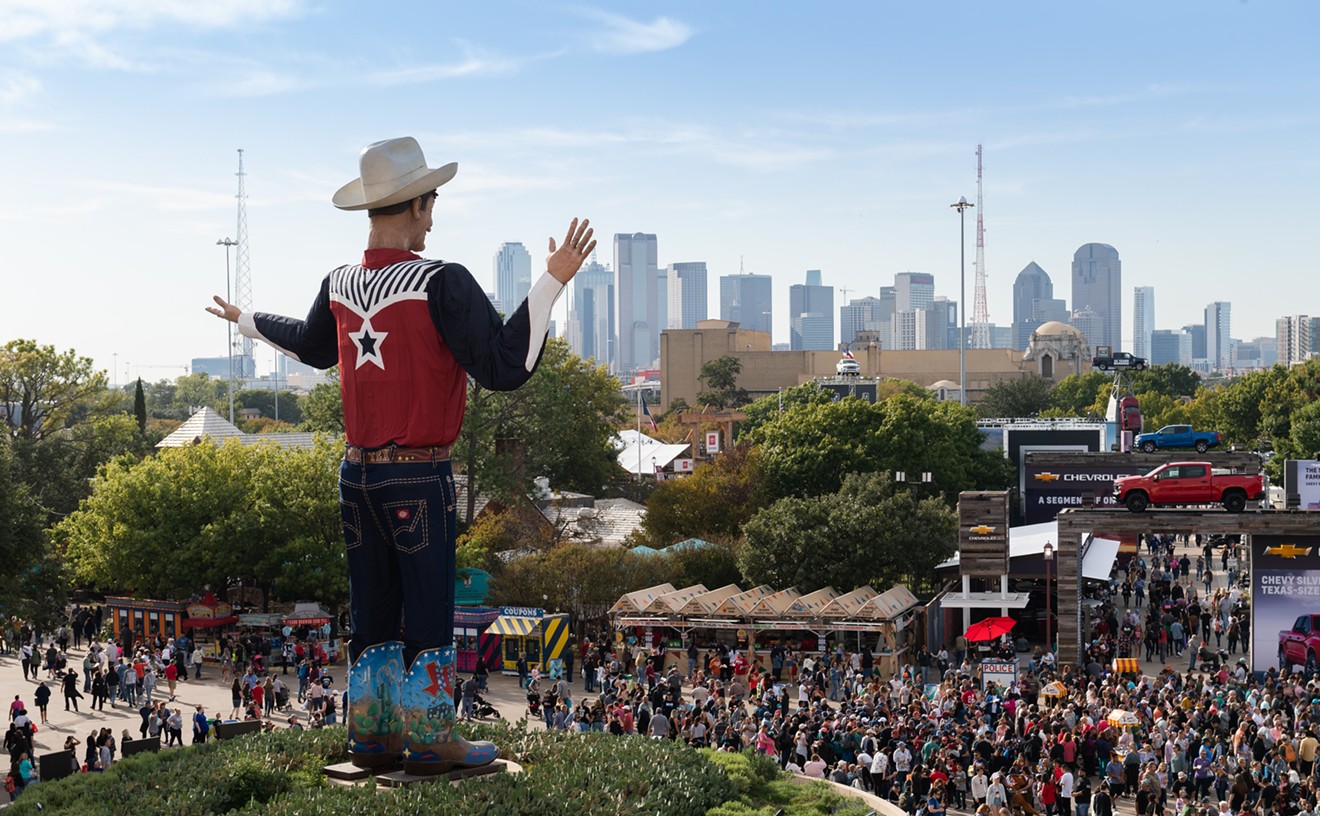“My parents’ work is no longer safe, and they don't have many hours to work,” says Chan Hnin, whose family moved to Dallas from Myanmar seven years ago. “Plus, my brother and I don’t have jobs right now, and they need our help. Of course, we’re also a little afraid of what will happen to us and if we are going to be safe.”
Hnin's parents work at the Kraft Foods plant in Garland. A devout Christian, Hnin, 18, attends Liberty University, a private evangelical Christian school in Virginia. When the COVID-19 pandemic reached the United States, Hnin returned to Dallas to help his family. Hnin's parents worry about him and his three brothers, just as they worry about their own safety at Kraft Foods.
The family's new home is bigger than the apartment where they lived when they first moved to the United States, but it’s not fit for six people to quarantine. Worse yet, Hnin's parents are wondering how to stay healthy and keep their family safe while working jobs deemed essential.
According to Mark Hagar, a resettlement manager for Refugee Services of Texas, these are common fears for refugees in Dallas right now.
“We’re already seeing some of our clients lose jobs because of this,” Hagar says. “And these are families living paycheck to paycheck. Even though some of these jobs are dangerous, they can never afford to lose them.”
New Challenges
In the 1970s, the apartments in Dallas’ Vickery Meadow neighborhood were known as an area for “swinging singles,” a cool place for young, unmarried people to live before settling down in suburbia. Now, the old, cramped apartments are home to families from Liberia, Myanmar, the Democratic Republic of the Congo and many more countries. When school is in session, dozens of languages can be heard in the hallways in nearby schools. Recently, those hallways have been bare, and the apartments of Vickery Meadow are bursting at the seams with quarantined children and teens, some of whom are sick with COVID-19.
Martha Stowe is the executive director of the Vickery Meadow Youth Development Foundation. By her own description, her job is all about “giving children a great life in Vickery Meadow.” But you can’t do that without helping the parents, too, so Stowe and her staff are well acquainted with practically every family in the neighborhood. The most immediate problem is the mere act of quarantining, she says.
“How the heck do you quarantine in an apartment of six people?” she asks, knowing that there is no good answer.
The best that sick residents of Vickery Meadow can do is stay behind closed doors and keep contact to a minimum — no small feat in a two-bedroom apartment. Stowe and her team have already seen some cases of COVID-19 among both kids and adults in the neighborhood.
“We were holding our breath for a while,” Stow says, “but now it’s here.”
Parkland Hospital’s Dr. Lance Rasbridge helps run a weekly clinic in Vickery Meadow. As a medical anthropologist and refugee outreach coordinator, he’s seen decades of refugees arrive on American soil and struggle with a slew of pre-existing conditions, some of which they had no idea they had.
“For something like diabetes, you’re supposed to have meetings with a nutritionist, a nurse, maybe even a pharmacist,” he says. “For the time being, all of that ancillary stuff is not happening. Now, we’re just giving them medicine and hoping we can have a follow-up soon.”
Because of the pandemic, Rasbridge’s staff has gone digital, conducting telehealth sessions to practice social distancing. That strategy works for Dallas residents who know their doctors and can easily access years of medical records, but digital communication is rarely the best way to reach refugees.
“It takes a level of interaction over the course of multiple visits to get a functioning doctor-patient relationship,” Rasbridge says. “And if a patient is depressed, that’s easier to see in person. Every refugee has been through an incredible amount of trauma and loss, and those are obstacles that can’t be overcome through telecounseling or telehealth.”
Refugees who are well are still confronting more challenges than usual. Stowe’s staff is trying to help parents get accustomed to supporting their children while they finish their school semesters at home, but has found little success so far.
“A lot of our kids speak English, but less of our parents do,” she says. “When you don’t understand what’s going on, it’s impossible to know how to help.”
Liz Curfman sees this struggle, too. As the senior director of program and community engagement at Heart House, an after-school program for refugees, she works one-on-one with many refugee children. But like Dallas ISD schools, Heart House closed its doors and canceled its classes in mid-March. She and her staff worry about refugee children falling behind in class because of the lack of adequate technology in their homes.
“A lot of our families have five to seven kids, two parents and maybe a grandparent, aunt or uncle living in the home,” she says. “There’s only one smartphone in the house, and most of our Heart House families are considered essential workers. So you’re talking about five kids being home all day with no ability to communicate with anyone outside of the house for at least eight hours.”
Curfman also worries about the emotional impact that quarantine can have on refugee children. She warns that it might exacerbate latent feelings of isolation. To help, the Heart House team plans to use even more social and emotional learning tactics.
“We work hand-in-hand with counselors from the Center for Survivors of Torture,” she says. “We talk about things like pain and bullying. ‘Why does it hurt when you’re being bullied?’ ‘What do you do with that hurt?’”
The Power of Community
Many advocates point out that some refugees may be better equipped to cope with COVID-19 than the average American. Curfman works with a Syrian family who didn’t think twice about Dallas County’s shelter-in-place order.
“They told me, ‘We don’t mind staying inside. We stayed inside for months and months on end when there were bombs going off outside,’” Curfman says. “The ability to think life or death is probably easier for refugees than us.”
Stowe agrees.
“Some refugees have coping skills that we might not have,” she says. “They don’t expect anything to be easy. They know terrible things happen all the time. They happen, you get over it, and you move on.”“Some refugees have coping skills that we might not have. They don’t expect anything to be easy. They know terrible things happen all the time." - Martha Stowe
tweet this
Some refugees have another strong asset: each other. The families of Vickery Meadow get to know each other, and some families have been friends for decades. North Texas offers a reliable network of refugee services, many of them run by refugees themselves. At Mosaic Family Services, for instance, all of the case managers are refugees, and new clients are partnered with someone who knows their language, their culture and, in many cases, the horrors they escaped. These case managers help their clients get Medicaid, look for work and file for unemployment, all essential services in times calm and turbulent.
“If someone who looks like you and speaks like you comes to your home, everything can change,” says Mirjana Omeragic, the nonprofit’s director of refugee and domestic violence services. “Sometimes, that case manager is the only person you know in America.”
Stowe sees less formal relationships develop every day. Mothers may bond over a shared concern for their children. Fathers may be neighbors and coworkers at the Tyson chicken factory in Gainesville. When these relationships develop, cultural differences often cease to matter. The families are tied by a mutual goal: survival in a strange new country.
Amid the rampant confusion and misinformation surrounding the coronavirus, Stowe has found that this community comes in handy.
“We put info out there about the virus, about who is hiring, about where to get food, and we know that info will spread like wildfire,” she says.
Yet Stowe knows that there are forces beyond these families’ control. She sees the tendrils of poverty snaking their way into every aspect of refugees’ lives. With a pandemic pushing the country to the brink of a depression, she knows that the lives of these children and parents will only get more difficult in the years ahead.
“A lot of people are saying this is showing the gulf between the haves and have-nots, and I’ve seen that up close and personal,” she says. “I’m watching the poor suffer the most, and dreams being put on hold.”

